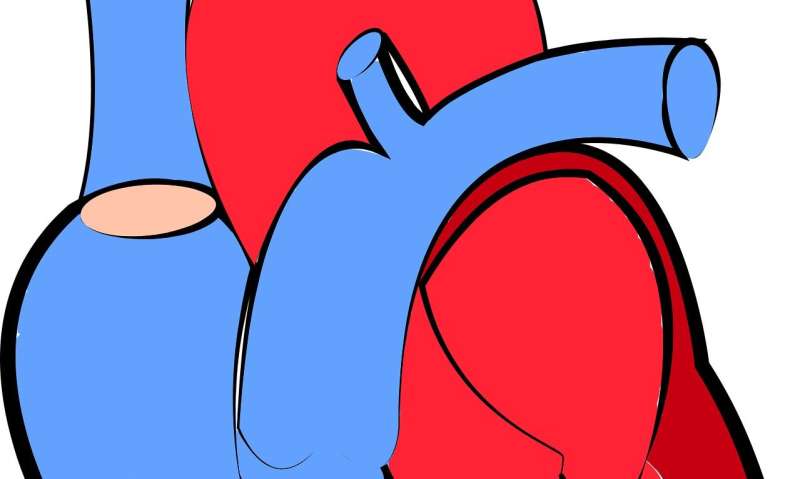Alarming number of heart infections tied to opioid epidemic

An alarming number of people nationwide are developing infections of either the heart's inner lining or valves, known as infective endocarditis, in large part, due to the current opioid epidemic. This new trend predominantly affects young, white, poor men who also have higher rates of HIV, hepatitis C and alcohol abuse, according to new research published in the Journal of the American Heart Association, the open access journal of the American Heart Association.
Infective endocarditis occurs when bacteria or fungi in the blood stream enter the heart's inner lining or valves. Nearly 34,000 people receive treatment for this condition each year, of which approximately 20% die. One of the major risk factors for infective endocarditis is drug abuse.
"Infective endocarditis related to drug abuse is a nationwide epidemic," said the study's senior author Serge C. Harb, M.D., assistant professor of medicine at Cleveland Clinic Lerner College of Medicine, Cleveland, Ohio. "These patients are among the most vulnerable—young and poor, and also frequently have HIV, hepatitis C and alcohol abuse."
Researchers analyzed data in the National Inpatient Sample registry from 2002-2016 on nearly one million hospitalized patients diagnosed with infective endocarditis to compare patients with heart infections related to drug abuse to those with heart infections from other causes. The registry is the largest publicly available database of U.S. hospitalizations.
During the 14 years studied, researchers found that the prevalence ratio for drug-abuse-related heart infections nearly doubled in the United States, from 8% to 16%. All geographic regions saw increases, and the highest jump occurred in the Midwest at nearly 5% per year.
They also found those with infective endocarditis related to drug abuse:
- Were predominantly young, white men (median age 38 years old);
- Were poorer, with nearly 42% having a median household income in the lowest national quartile, and about 45% are covered by Medicaid;
- Had higher rates of HIV, hepatitis C and alcohol abuse compared to patients with infective endocarditis who are not drug abusers;
- Had longer hospital stays and higher health care costs; and
- Were more likely to undergo heart surgery, yet less likely to die while hospitalized. Lower death rates are likely due to their significantly younger age.
"Nationwide public health measures need to be implemented to address this epidemic, with targeted regional programs to specifically support patients at increased risk," Dr. Harb said. "Specialized teams, including but not limited to cardiologists, infectious disease specialists, cardiac surgeons, nurses, addiction specialists, case managers and social workers, are needed to care for these patients. Appropriately treating the cardiovascular infection is only one part of the management plan. Helping these patients address their addictive behaviors with social supports and effective rehabilitation programs is central to improving their health and preventing drug abuse relapses."
Diseases that occurred more frequently among patients with heart infections from causes other than drug abuse included high blood pressure, diabetes, heart failure, kidney disease and lung disease. A study limitation is that the registry relies solely on diagnostic codes (ICD codes) and does not include hospital transfers. Another limitation is that the registry provided only general information by region, without details specific to states, cities and rural towns.


















